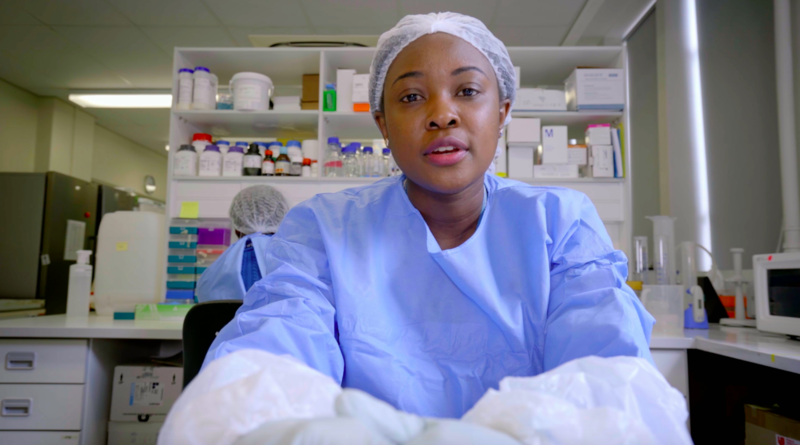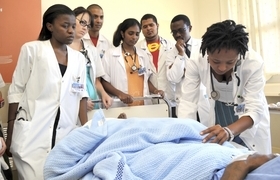How the outside world affects unborn babies
03 April 2018 | Story Ambre Nicolson. Photo Supplied. Read time 3 min.
Doctor Nadia Chanzu-Ikumi, a UCT researcher and AXA Research Fellow, recently participated in a video series created by the AXA Research Fund on the ways in which external factors can impact the health of unborn babies.
“The idea behind the videos is to create awareness about how the health of babies in utero can be affected by the external environment and the health of the mother,” explains Chanzu-Ikumi, a postdoctoral research fellow in UCT’s Department of Pathology.
The AXA Research Fund is the scientific philanthropy arm of global insurance brand AXA.
So far the videos in the series have looked at how environmental exposures can alter the developing immune systems of unborn babies as well as the risk of preterm births or low birth weight in the case of HIV-positive mothers.
Babies in utero are protected from many – but not all – external influences.
“In fact, the placenta is the only link between the developing child and its mother,” says Chanzu-Ikumi. “But because a baby will inherit some components from its father – components that are foreign to the mother – the baby and the mother are at risk of rejecting one another.”
A delicate immune balance
In a healthy pregnancy a delicate immune balance is created in which the baby is afforded maximum protection while ensuring that the mother’s body does not reject the foetus. It is this balance that HIV and antiretroviral therapy (ART) exposure may jeopardise.
“Early in my career, when I was working on a study involving HIV prevalence in Kenyan women, I came across the phenomenon of HIV-positive mothers having a higher risk of premature births. Often, even if these women carry their babies to term, the babies are born underweight and with compromised immune systems,” says Chanzu-Ikumi.
It was this work that brought her to South Africa and UCT.
In 2015 her research was recognised when the AXA Research Fund awarded her a postdoctoral fellowship at UCT. She was the first African to become an AXA fellow. Today, she is working with a large team of researchers to better understand the risks associated with HIV-positive mothers.
“In studying the placentas of HIV-positive women, we look at the different kinds of cells that are present and the way they function, both in how they help the placenta to develop and how they support the pregnancy,” she says.
“In some cases the placentas of HIV-positive women are smaller and less developed than in their HIV-negative peers.”
In a country such as South Africa, in which approximately 250 000 babies are born to HIV-positive mothers each year, Chanzu-Ikumi’s work has the potential to have a huge impact on public health outcomes.
“I hope that in the future we can identify the factors at play and in this way better protect the health of babies before they are even born.”
 This work is licensed under a Creative Commons Attribution-NoDerivatives 4.0 International License.
This work is licensed under a Creative Commons Attribution-NoDerivatives 4.0 International License.
Please view the republishing articles page for more information.










